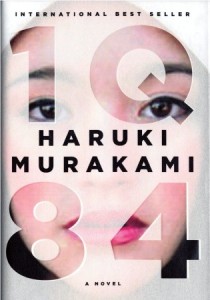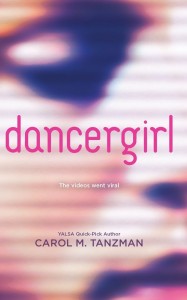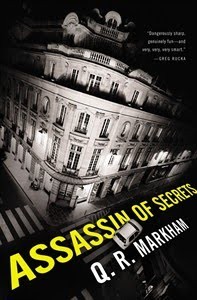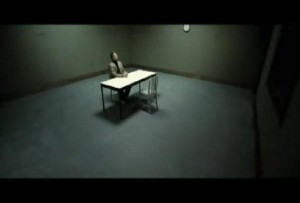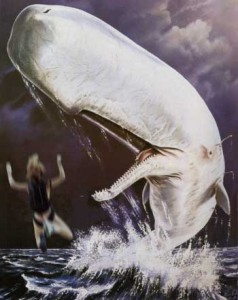by Michelle Gagnon
One of my all-time favorite books (and a popular gift for friends who write) is called, MORTIFICATION: WRITERS’ STORIES OF THEIR PUBLIC SHAME.
It includes vignettes from such storied authors as Roddy Doyle, Michael Ondaatje, and Val McDermid on the most embarrassing experiences 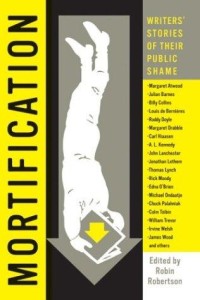 they’ve ever had during their writing careers. For example, did you know that Margaret Atwood’s first-ever book signing took place in the Men’s Socks and Underwear section of a department store? Or that some of Chuck Palahniuk’s fans started throwing dinner rolls at him during an event in San Francisco? And apparently Stephen King was once forced to sign so many books that his fingers cracked and started to bleed.
they’ve ever had during their writing careers. For example, did you know that Margaret Atwood’s first-ever book signing took place in the Men’s Socks and Underwear section of a department store? Or that some of Chuck Palahniuk’s fans started throwing dinner rolls at him during an event in San Francisco? And apparently Stephen King was once forced to sign so many books that his fingers cracked and started to bleed.
Up until last October, my most mortifying moment as an author occurred at a local bookstore, when not a single person showed up for my reading.
And then along came Litquake.
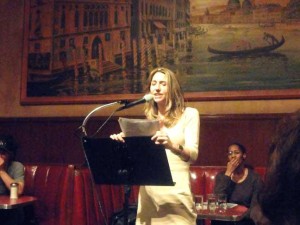 Litquake is San Francisco’s premier literary festival, a week-long celebration of the written word that features hundreds of authors reading at dozens of events. More than 16,000 people attended last year. Being asked to participate is a big deal, particularly for one of the most coveted spots.
Litquake is San Francisco’s premier literary festival, a week-long celebration of the written word that features hundreds of authors reading at dozens of events. More than 16,000 people attended last year. Being asked to participate is a big deal, particularly for one of the most coveted spots.
And for the 2011 series, I was included in a great one, entitled, “These Mean Streets: Reality and Fiction Collide.”
I was the only woman appearing on a slate with a former mob informant; the terrific writer, working PI, and all around great writer David Corbett; and a slew of other big names. The event was being held at Tosca Cafe, one of my favorite bars in San Francisco.
All in all, it was shaping up to be an exciting evening. Thanks largely to the fact that the event would be happening in a bar, I even managed to convince several friends who don’t ordinarily attend readings to come along.
You can never predict how big the crowd will be at one of these events, but that night, Tosca was packed. Standing room only, easily a couple hundred people in the room.
I was nervous, and hadn’t slept terribly well the night before. Too nervous to eat very much all day, in fact. So I did what any sane person would do–I drank a glass of wine to calm myself down.
I was scheduled to be the third reader of the evening. I sat through the first two, my mouth dry, palms slick with sweat, tapping the pages of my chapter on the table (to the growing irritation of my friends).
And then, it was my turn.
I’ve performed in hundreds of dance performances, and have participated in dozens of author events over the past few years. One thing I know: the minute I get up there, the nervousness dissipates and I’m fine.
So there I was, standing in front of a microphone with a spotlight bearing down on me, facing this hot, crowded room.
Initially, everything was clipping along just fine. I read the first few pages of my chapter, and the crowd seemed appreciative–at least, no one was heckling or throwing things at me.
In the middle of page five, the words started swimming before my eyes. I paused and tried hard to force them back into focus. They refused to cooperate. I realized that for the space of at least a minute, I hadn’t said anything. Panicking, I tried to collect myself. I stood up tall, found my place, and got through another paragraph.
I’ve never fainted before in my life–never even came close. But next thing I know, I’m lying on my back with a total stranger inches from my face, yelling, “Were you locking out your knees?”
Which even in retrospect doesn’t seem to be the first thing you should ask someone who has just passed out cold.
Thankfully, there was an open booth behind me. According to my friends (who delighted in detailing the exact order of events after I’d recovered slightly), I said, “I’m dizzy,” then sat down hard in the booth behind me. After which I proceeded to plummet ungracefully into the lap of the woman occupying the banquette (featured in the photo above, right before we became much better acquainted).
And of course, this was the one and only time that I’d decided to wear a dress for a reading. Meaning that I pretty much flashed the entire audience. Thank God I was wearing tights.
My friends helped me outside and plied me with glasses of water and relatively fresh air (there were a lot of smokers around). Strangers came out to check on me. The rest of the reading proceeded inside; sadly, I missed most of it. As a favor, the event organizers let me get up and finish my story at the very end of the evening.
A week later, during the closing party, Litquake impresario Jack Boulware informed me that they’ve never had an author faint before–apparently it was the talk of the organizing committee. So much so that they’re debating naming an honorary award after me next year. Word is still out on whether it will be bestowed for passing out or remaining conscious.
So now, should the editors of MORTIFICATION ever contact me, I can assuredly put Stephen King’s most embarrassing moment to shame.
I’d love to hear about your most mortifying experience, either during and event or really, at any point in your life. Please. It will make me feel better.

![[image4.png]](https://killzoneblog.com/wp-content/uploads/2011/12/image4.png)
